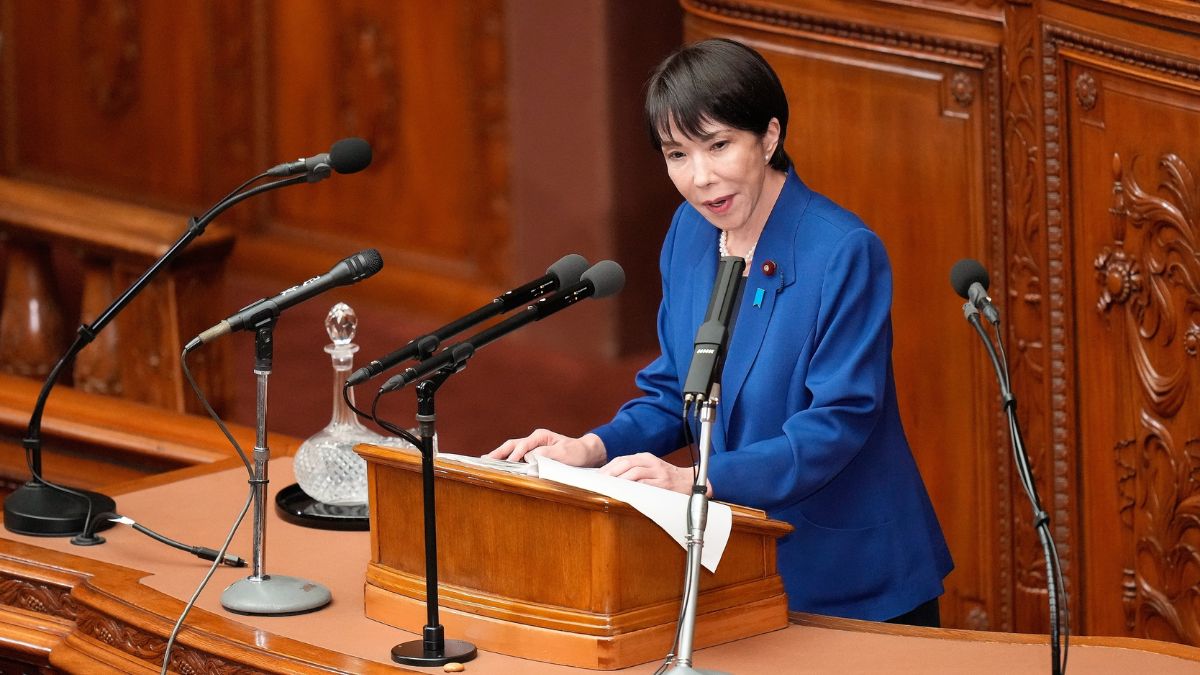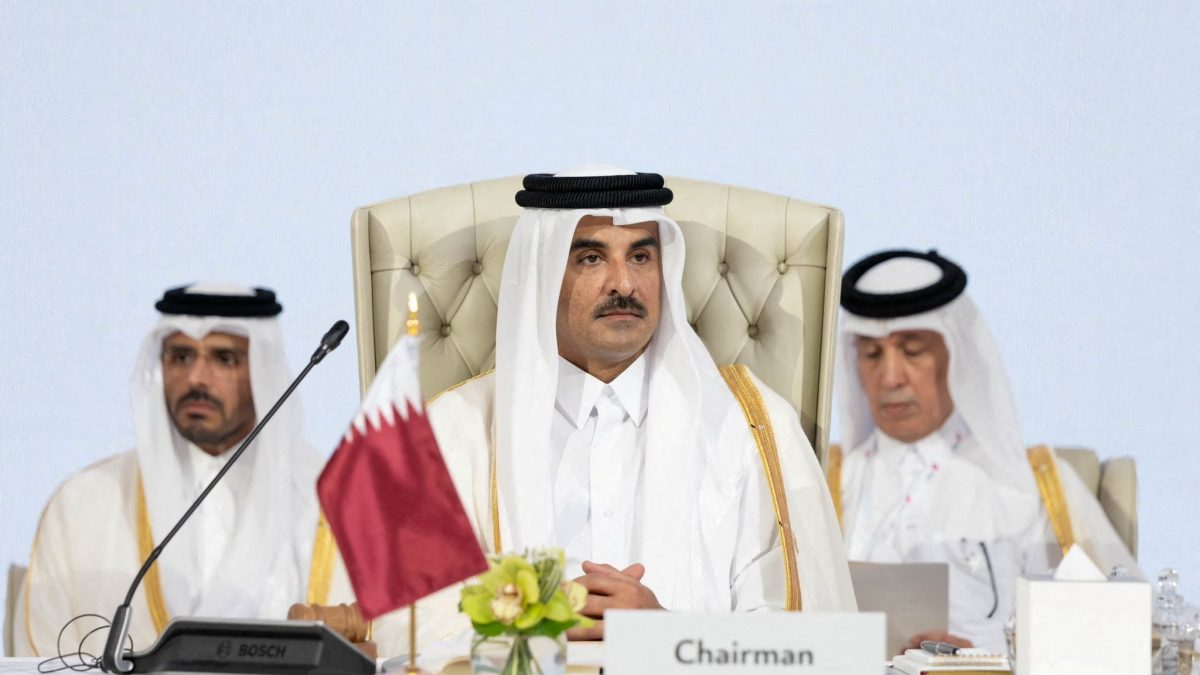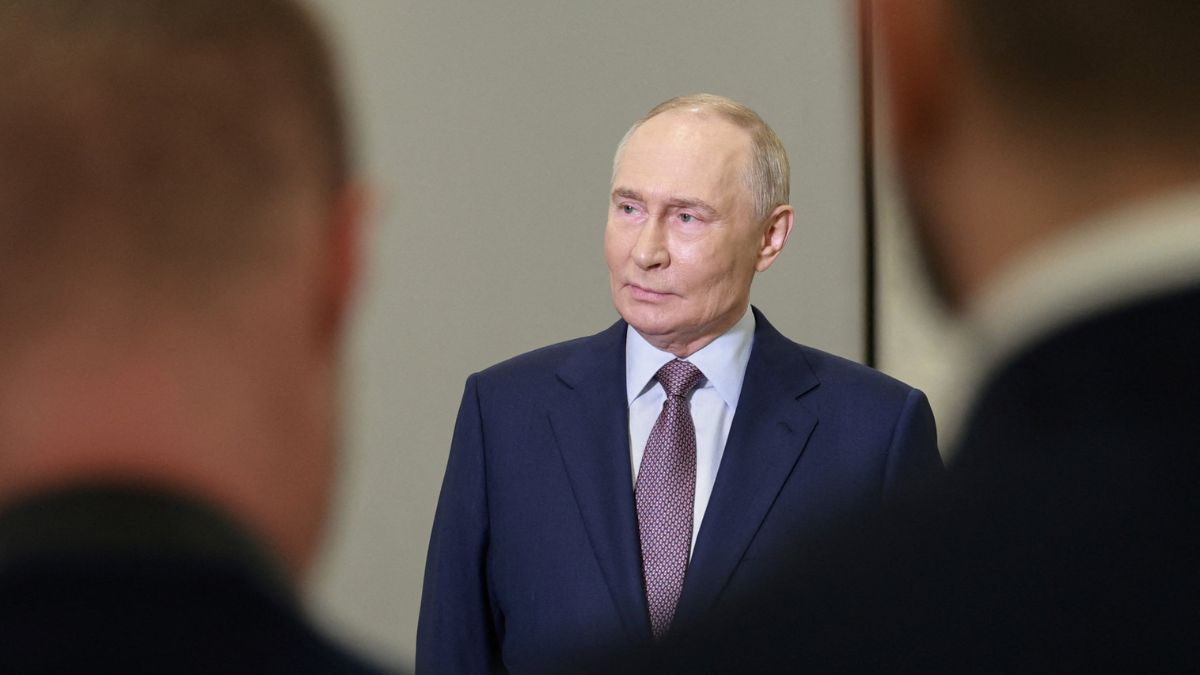In her first speech to the parliament outlining her government’s policies, Japanese Prime Minister Sanae Takaichi on Friday announced she will raise defence spending to 2 per cent of the GDP in the current fiscal year ending March 2026.
Takaichi, who has a reputation of a China hawk, suggested she would ramp up the work with partners in tackling the Chinese challenge in the region, according to Nikkei Asia.
In an apparent reference to China, Takaichi said, “The free, open, and stable international order with which we have become familiar is being significantly shaken by historical shifts in the balance of power and intensifying geopolitical competition.”
Takaichi specifically mentioned military developments related to China, North Korea, and Russia as “serious concerns”.
As for her security approach, Takaichi said Japan will deepen security partnerships with the United States, South Korea, and the Quad comprising Japan, the United States, Australia, and India.
ALSO READ: What ‘China-hawk’ Sanae Takaichi’s rise as Japan’s PM means for India
Takaichi further said that Japan “will strengthen cooperation with like-minded nations which share fundamental values and with countries of the Global South”.
Takaichi also said that three national security documents related to security strategy, defence strategy, and defence build-up programme will be updated by the end of 2026.
With the defence spending hike, Takaichi will join Western nations who have pledged to raise their defence spending to 2 per cent of the GDP by the end of the current fiscal year. Under pressure from US President Donald Trump, Nato members have pledged to raise defence spending to 5 per cent of the GDP by 2035.
Impact Shorts
More ShortsTakaichi broke the glass ceiling by becoming Japan's first woman prime minister on Tuesday. But she is not expected to have any honeymoon period as she has a slew of political, economic, and diplomatic challenges.
Politically, just like her predecessor Shigeru Ishiba, Takaichi does not have a parliamentary majority and has to rely on allies and support from outside of the coalition. Economically, Japan has been plagued by deflation and is currently in the grips of rising prices. Both the public and industry have high hopes with her.
On the diplomatic front, Takaichi's first test will be handling Trump, who will visit Japan on October 27-29. Takaichi and Trump are expected to hold talks on Oct. 28. Over the years, Trump has repeatedly trashed allies as freeloaders and sown fears that he may not honour US security commitments.
Takaichi reaches out lower-income, working class families
With her economic policies outlined in the parliamentary speech, Takaichi reached out to lower-income, working class families in the country.
Takaichi announced she will raise the basic income deduction to 1.6 million yen ($10,500) this year and that the threshold will be increased in line with inflation, according to Nikkei Asia.
Takaichi further said that a tax exemption scheme will be introduced for low-income households and a law will be made to abolish a temporary tax on petrol.
Takaichi announced she will raise wages for essential workers like nurses and caregivers. She also said she will launch discussions to reduce the social security insurance burden for working families.
Referring to a virtuous cycle that she would start, Takaichi said, “We aim to increase incomes, improve consumer confidence, boost business profits and raise tax revenues without raising tax rates.”
At the same time, Takaichi said that fiscal sustainability will be taken care of when floating any stimulus.
Takaichi said, “To build a strong economy, we will strategically implement fiscal stimulus under the principle of responsible proactive fiscal policy.”
Takaichi vowed to “achieve fiscal sustainability and retain the confidence of the financial markets”.


)

)
)
)
)
)
)
)
)



